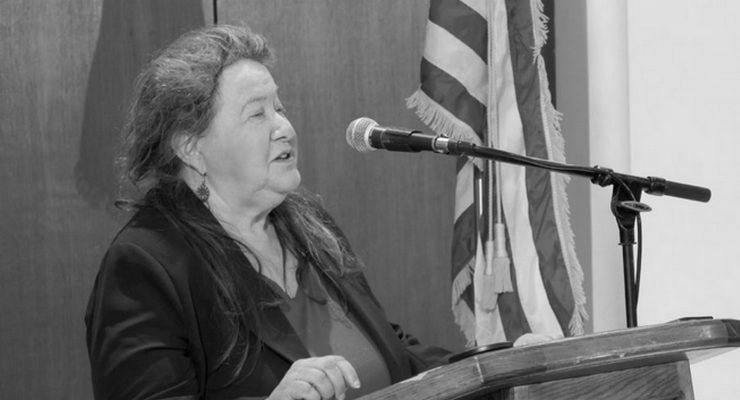The average person spends a third of their life sleeping. Next to exercise and nutrition, sleeping is considered one of the three pillars of health.
In fact, Dr. William Dement, professor and founder of the Sleep Research Center at Stanford University, attributed 90 percent of our health to sleep.
Yet one in every three people report sleep problems.
While sleep science is relatively new, as research grows we’re learning just how important sleep really is, and now, companies exist because of the growing belief that environmental toxins are indeed gravely harming our health.
And apparently, they live in our mattresses.
And, get this: Even the metal springs in your bed are killing you.
Alarming, yes. Incredulous, perhaps. So let’s start with the less confusing of the two.
Environmental Toxins
They’re everywhere, right? Probably, but some purport strongly that they particularly live in our beds.
“Most mattresses are like big sponges,” says Denise Pummer, Partner and Marketing Director for Samina North America, a division of Samina, a 30-year-old ,top-of-the-line natural mattress brand from Austria that uses an open-air design that doesn’t trap moisture or support the growth of mold, dust mites or bacteria.
“They suck up moisture and breed mold. They’re also made of synthetic foam, fire retardants, petrochemicals and polyester,” she adds, mentioning a study done by Dietrich Klinghardt, MD, PhD, who biopsied mattresses from immune-compromised patients and found that they had been lying on and breathing in mold.
Pummer is married to and business partners with Claus Pummer, who has been a certified holistic sleep consultant for 20 years.
They consider themselves part of “the biohacking movement,” a sort of do-it-yourself social-biology movement.
The couple relocated to Pasadena last year and opened their Samina showroom, which caters primarily to trade shows, conferences and medical offices but also sells to individuals based on appointment.
“We work with chronically ill people in beds recovering at home,” says Pummer.
Samina products are the creation of Guenther Amann-Jennson, PhD, an Austrian sleep psychologist with 30 years of experience and an honorary degrees in sleep medicine. He takes a holistic approach to health and connects sleep to multiple interactions with the body, mind and soul. He’s one of the pioneers of the healthy sleep movement surrounding bioenergetics and life energy.
Denise explains, “We have more brain wave activity while sleeping than awake. Sleeps reenergizes our immune systems. It’s the time when children and muscles grow.”
But apparently, instead of sleeping, our bodies are busy fighting off many toxins.
“The indoor pollution in most homes and businesses is actually more toxic than outdoor pollution,” she says. “We’ve sealed our homes. We don’t have the circulation anymore.
“And all the chemicals in our homes–our soaps, aerosol cleaners, flame retardants in the furniture, enamels in the cabinetry… they’re all hurting us.
“People are sick and tired of being sick and tired, and we’re seeing a growing population of chemically sensitive people.”
The Metal Springs
On top of all that, there’s the other aforementioned evil purportedly lurking in your bed: the very metal springs most Americans have come to accept as the inherent bone of a mattress.
As Pummer explains, “the metal pulls in electricity and radio frequencies from around you… the wiring, the electricity running through your walls and to your electronic devices, are emitting pulses of electromagnetic energy all the time, even when turned off. You have to kill the breaker to stop them.”
Otherwise…?
“These frequencies interfere with our own biorhythms and circadian rhythms,” Pummer says. “Our hearts beat because of electrical impulses; these frequencies interfere with our natural balance.”
She also mentions how many people report feeling better when they eliminate electrical appliances from their bedroom and turn off Wi-Fi at night.
“They have simple devises that can measure the EMFs in your home,” she adds.
The Pummers personally sleep with a grounding pad in their bed, which is one of the optional accessories that Samina sell.
“The grounding pad neutralizes these energies, which allows for deeper sleep,” she says.
Samina is a layered system made of slotted wood slates with a baked natural rubber between that has been pinhole-punched for air flow. It’s topped with an organic wool/cotton topper that has corkscrew hollow fibers to wick away moisture and insulate from extreme temperatures. The wool being harvested of course from free-roaming sheep in a cruelty-free environment.
The catch?
The starter Samina sleep system will run you about $9,000.
A Cheaper Healthy Solution
Luckily, they’re not the only ones in the business, in case you’re on a slightly less exotic budget.
Palmpring, a company that began in 1996 in South Korea by Dae-Seob Kim, who created the country’s first all-natural mattress without metal, takes an even greener approach to replacing springs.
They use palm coir, also known as coconut fiber, woven from the discarded husks of the growing coconut trade.
According to Palmpring’s website, 85% of each coconut is husk and these formerly unused husks don’t decompose easily and can actually cause significant pollution if burned.
So Palmpring puts them to use– even though the process to transform the husks into mattress fiber takes about eight months.
Still, they are recycled and processed with only water as the solvent, then woven into rope, flattened into layers and coated with 100% certified organic latex. This gives the fiber a spring-like function and a water-repelling, germ-resistant mattress base.
That’s it. Four ingredients: 100% certified organic latex, coconut fiber, organic wool and cotton. No wood.
Kim’s daughter, Camilla Kim, who grew up in Seoul, South Korea, helping her father with his company, decided to open Palmpring’s first North American showroom, which debuted in Koreatown in 2011.
The CEO and founder of Palmpring USA, Ms. Kim moved her showroom to Pasadena in November of 2015.
“With daughters of my own, what surprised me most upon arriving is how few Americans purchase organic bedding,” says Ms. Kim. “I saw an opportunity to grow the organic sleep movement.”
Kim, who has a factory in Vernon, CA, is one of the only women manufacturers in the industry and says she was the first mattress company in the U.S. to use only coconut, through others have since followed suit.
She was the recipient of the 2016 National Parenting Product Award for her winning crib mattress and the 2016 Green Festival’s “Most Exciting Brand” awards.
Despite her very simple recipe, there are still 8 different comfort levels depending on how many layers you want and the preferred degree of firmness.
While still not cheap, a Palmpring mattress can be had anywhere from $600 for a thin twin up to $5,000 for a plush queen or king and comes with a 10-year warranty.
They’re also durable, notes Kim as she bounces on a coconut fiber block.
Palmpring sells bedding, pillows, shoe insoles and a sectional sofa as well.
For more information, stop by, call or check out their websites at:
Palmpring, 110 W. Green Street, Pasadena, (626) 844-0007, www.palmpringusa.com
Samina, 24 S. Los Robles, Pasadena, (626) 768-0311, www.justhealthysleep.com














 0 comments
0 comments



